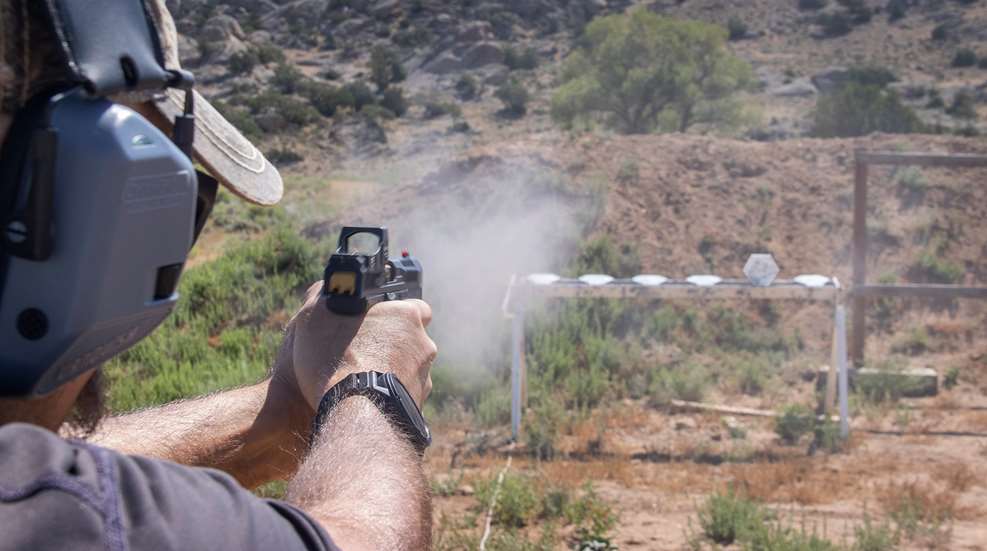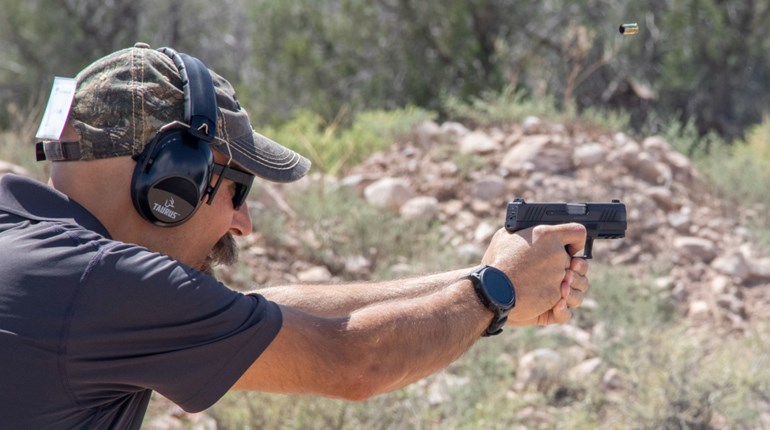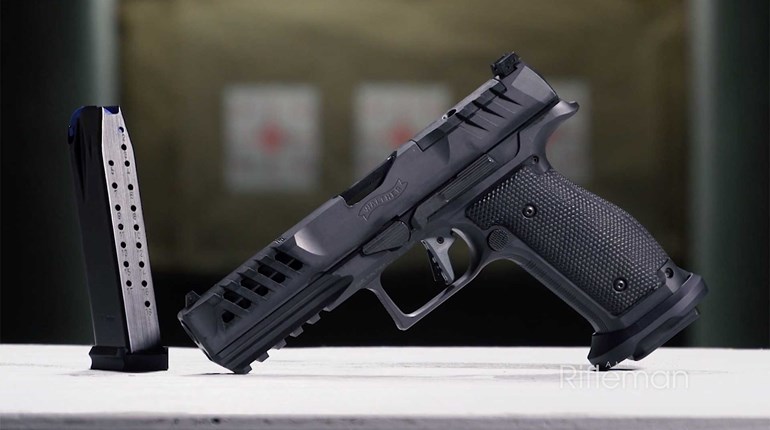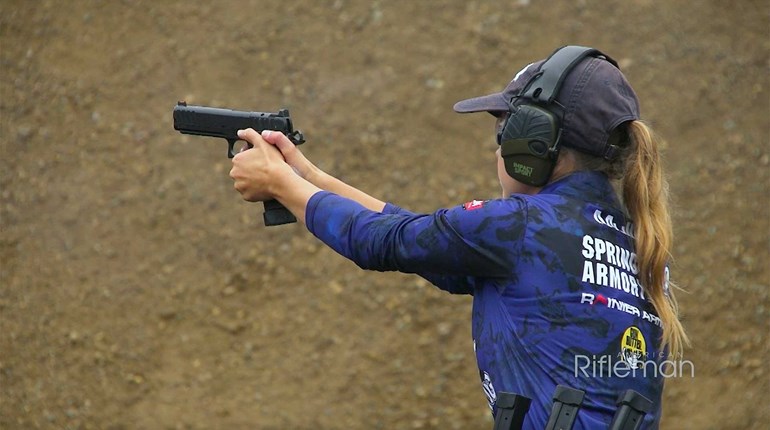
An intermediate shooter seeking to enter the realm of shooting consistently well can be challenged by the ever-increasing demand for stringent speed and accuracy requirements. Fighting to shave tenths and even hundredths of a second to improve their shooting performance, the struggle is real for those seeking to shoot at a master level.
At this stage in your skills development, you pretty much have the shooting mechanics down. You can present, grip, hold and press with some level of consistency, but not quite that of a master-level shooter who is capable of successful on-demand performance eighty-five percent of the time.
Given the fact that occasionally you can catch lightning in a bottle with a high-performance success, the question logically follows, if you can perform the skill at that level now and again, then why can’t you do it 85 percent of the time like the masters do? What exactly is preventing you?
Most shooters are shocked to discover that it really isn’t a matter of skill.
The fact that you can pull it off on occasion means that you already possess the skill. So, if it’s not having the skill, then what exactly is it? Consistent high-level performance requires tremendous mental discipline, and that discipline can be readily compromised by ‘mental slop.’
Higher-level performance is developed by a precarious balance of mental discipline and self-trust. It’s not possible to attain shooting mastery without that balance, so how do you train for it? The answer, if not mechanical, is always mental discipline. Anything other than applying sound mental discipline is considered sloppy and unbefitting of a master shooter.
As there are multiple layers and subprocesses to shooting well, there are several elements of mental slop to be addressed if you want to progress. The first of these is failure to follow the shooting process.
Failure to Follow the Process
The shooting process is defined as establishing stability, bringing that stability to alignment, and pressing off a round without disturbing that alignment. The process will never let you down. It is pure, resolute and beyond reproach. It is without fault and cannot be met with failure. It is the beacon of light leading to the holy grail of consistent performance.
Following this simple process should be the way you shoot. However simple yes, but not easy, especially when placed under the duress of challenging times and accuracy requirements. Unless you are already performing at that mystical eighty-five percentile, consistency waivers.
It is only when you consistently follow the shooting process that you are met with repeatable success. Failure to follow the process invariably results in failure. Lower-level shooters focus on the results of the process as opposed to the process itself, or they chase time as opposed to staying mentally attached to the process. To attain repetitive success, it’s imperative that you not detach mentally from the shooting process.
Self-trust
The next mental slop element is not trusting in your own skills. As pedantic as it may sound, some days you’re out there training where confidence and trust exude from your very being and you can’t miss. Other days you can’t even hit the target backing.
The solution is to press the “I believe” button in your mind, get out of your head and allow yourself to follow the process. You can trust your family, you can trust your closest friends, but trusting in your own skills can sometimes be challenging.
Going Ottoman
Next on the mental slop list is “Going ottoman”— a term describing when your mental focus falters and you put your mental feet up on a mental ottoman because you are easing up on your mental-focus gas pedal.
A good example of this is running a plate rack. You effortlessly hammer down the first five plates and then a disparaging thought enters your mind ‘I’ve got this’ or ‘don’t miss,’ or something along those lines, and of course it becomes a self-fulfilling manifestation as you miss the sixth plate.
When shooting, we strive to develop a consistent and durable physical grip on the gun throughout the string of fire. The same goes for mental discipline or ‘mind grip.’ The split-second you loosen your mental grip on the process you have changed your ‘mental grip pressure’ so to speak, and you come straight off that mental gas pedal resulting in going ottoman.
The brain is naturally predisposed to relax its focus (mental grip on the process) and we as humans must use discipline to develop a durable enough mental grip to be met with success more often.
Mental Readiness
Be ready sooner. It’s imperative that you remain mentally ahead of the mechanical process. If you have followed the shooting process and have brought stability to alignment and you’re not there at that moment mentally, then you are behind the performance power curve.
The instant you realize you are behind mentally; it introduces tension which in turn adds unwanted input into the shooting process. Failure to remain mentally ahead of the process creates a cascading series of undesired events leading to failure.
Cleaning up mental slop is a matter of sustaining your mental grip on the shooting process, trusting in your skills, and being mentally ready sooner.




































